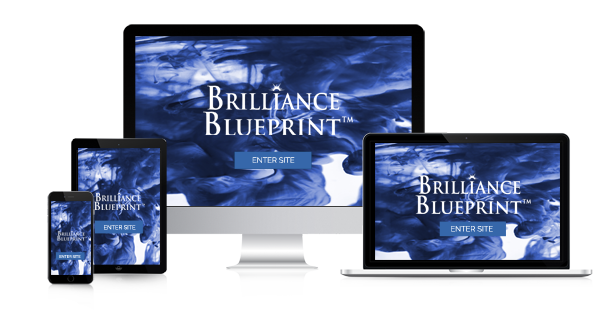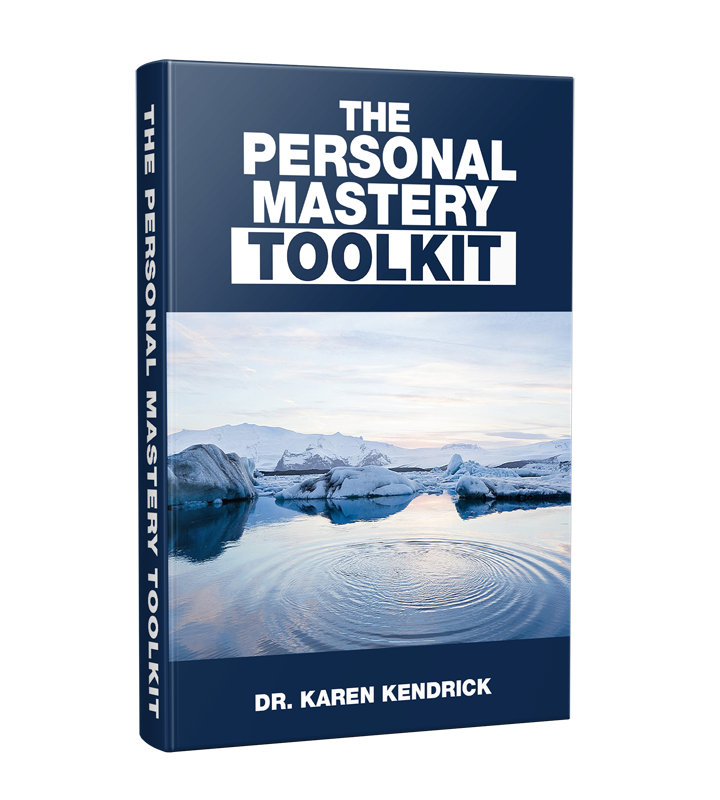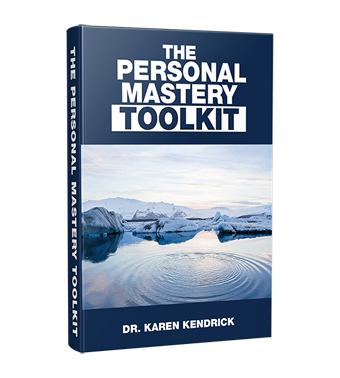7 TACTICS THAT HELP YOU BE MORE RESOURCEFUL
ABOUT THE EPISODE
Knowing how to find and leverage resources when you need them is a critical skill. Learn 7 powerful ways to be more resourceful to deal with obstacles, solve problems, and get ahead.
TRANSCRIPT
There will always be things in life to figure out or overcome. So the question is, what skills do you have in your tool bag to help you move forward?
Hey Everyone, it’s Dr. Karen Kendrick, and welcome back to Mastery Now.
If you have people in your life that seem to be really good at solving problems or moving through obstacles or figuring out smarter, faster ways to do something, then I think you’re going to really enjoy this episode. Because it’s really about how to be more resourceful. This is such an important skill to master because we may not all have the talent, or time, or money to do everything, but we can certainly accomplish a lot if we know how to get the right resources.
So what do we really mean by resourcefulness? So what I’m talking about here is just the ability to marshal help in some way to address something, whether it’s a challenge you’re going through, or just trying to find a better way to do something. So it could be under challenging circumstances or just being opportunistic to get something done in a more efficient or appropriate or better way.
And you can also think of resourcefulness as being broken down into three pieces. First, it’s about finding the right resource, right? So it’s about searching online, or talking to people, or maybe just being more alert out in your community or whatever. But it starts with being able to find the right person, or tool, or type of help that you need.
The second piece of resourcefulness then is engaging the resource. Whether it’s a person that you have to motivate to help you, or maybe just making the decision to go forward with and use that resource. So that’s kind of the second piece is just engaging or choosing to move forward with that resource once you find it.
And then the third element is just correctly using or leveraging the resource. In other words, you have to know what to do with the resource to make sure you’re making the most of it. So you could be great at finding resources, but maybe you don’t really know how to leverage them when you get them. Or maybe you know how to find people to help you, but you don’t know how to really keep them motivated to continue to help you. Or maybe again, you’re great at motivating people to help, but then they are not really helping you in a way that is going to be useful to you.
So resourcefulness is really a combination of all of those things. But bottom line, this is a great skill to master because again, we don’t all have unlimited time and skill sets to do everything we want and there’s going to be problems in life that come up that we need to be resourceful for.
So I’m going to walk you through seven ways to be more resourceful that I hope will help you. So the first way to be more resourceful is just to have the mindset that resources are out there. You’ve got to assume that. If you assume that help isn’t available, that’s going to be really difficult to get good at finding help when you need it.
So you’ve got to start with that premise. You’ve got to be optimistic and know that there is somebody that’s probably had some similar issue, or problem, or approach, at some point that has worked or some other tool or piece of information that is going to help you with what you’re going to do. Because again, you’re not the only one, most likely, that’s ever had something like this come up. Or someone that’s had the same goal. Or someone that struggled with a particular issue. So start with that premise. And that’s really going to prime your brain with the right mindset to get your energy going to go out and find help. Because otherwise you’re going to be not really able to muster a lot of energy if you really have doubts about whether you can find a solution.
Now the second way to be more resourceful is to do what I call leveraging your Rolodex. Now Rolodex is that old term for our list of contacts and phone numbers and so forth. And it used to be in a little tool on our desk called a Rolodex. So I’m kind of using that older term just as a phrase. But what I’m really saying is, it’s starting with who you know.
Because as you know, it’s not always just about what you know. It is about who you know. That’s such a common phrase that you hear. But it also not just who you know. It’s who they know. So it’s always like that six degrees of separation in the sense that the contacts that are related to the contacts you know, even broaden your sense of options even more.
Think about how things go viral. Things get shared to friends, of friends, of friends, right? So you don’t have to know everybody. But you start with that set of people, and then you think about “Well, who else do they know that might be able to help?”
So this is a very important principle here, and most of us really know more people than we realize. And we also underestimate how much of a resource those existing people might be because we think, “Well, they don’t really know anything.” But the reality is, well maybe they don’t know a lot, but their neighbor is somebody that knows a lot. Or their hairdresser is somebody that knows a lot. Or their coworker is somebody that knows a lot. So always leverage your Rolodex and start with that premise.
The other thing here is just to be really clear about what your issue is and crystallize that in terms of what kind of help you’re really looking for. So that when you talk to people and you are trying to leverage who you know, you have to be able to speak up and describe what your issue is and what kind of help you really need.
So that way, if the people in your immediate network aren’t able to help you, they’re able to succinctly describe to their friend or their neighbor or their coworker what it is you’re looking for. So always remember that as you’re going about leveraging your Rolodex, is just be crystal clear on what kind of help you need, what you’re looking for, and ask how they can help.
A third way to be more resourceful is to get good at repurposing whatever existing resources that you already have. In other words, get better at reusing stuff, or seeing that there are pieces of what you might already know, or information you already have, or something sitting in your closet or on your computer or whatever, that you might be able to apply in this situation.
Now, it doesn’t always work like that, but there are a lot of times that we kind of forget what we’ve already got in our toolkit, or what we’ve already got available to us. And sometimes it’s just a matter of really stepping back and looking at things a little bit differently to figure that out.
Or sometimes you just have to maybe ask for input. And sometimes it’s the people outside of yourself that are able to kind of point to and say, “Well look, you’ve already done this. Or you already have this. Why can’t you do that?” And so sometimes we get too close to it, I think, and it’s hard to remember everything that we’ve already got that might be able to help us.
So one thing I would recommend is if you do struggle with this a little bit, is just to get better at taking inventory of what you already have. So sometimes it’s just a matter of even sitting and writing down, when you think about it, “What else do I already know?” “Who all do I have access to?” “How much money do I have available for this particular issue?” “How much time do I have?” “What else have I got that I’ve already written about, or books have I read?” That again, you might be able to in some way use or reuse or repurpose.
Number four, in terms of how to be more resourceful, is just to leverage other success models. What’s already been done. Remember, you don’t have to reinvent the wheel every time you come up against some issue. You don’t have to start from scratch. So it’s always about looking at who else has already done a great job with this, or what are they doing, how are they doing it, what can I model? And what have I seen out there that’s already doing a great job with this, so that I’m just not starting from a completely blank slate. Because it’s so much harder when you do that.
Now, this may not always work for your specific situation. Or you may say, “Well yeah, that person can do that and that’s great, but it won’t work for me.” And if so, that’s fine. But it does at least provide some insights or possible different ways of looking at the problem that can be really useful.
So maybe you don’t model everything that someone else is doing or some other way to do it. But at least it gives you information. It gets you educated. It helps you see the problem potentially in a new way to help generate alternatives. A lot of resourcefulness really is just gathering information. Seeing what’s out there. Getting educated about an issue, or a possible solution, so that again, you can move forward.

MASTER YOUR GAME
Get world-class training to boost your self-knowledge, success, and fulfillment.
The next way to be more resourceful is just to clarify what I call the “minimum viable option.” In other words, what are the bare essentials or the bare minimum solution that will get the job done? In other words, strip away all the bells and whistles or all the “nice to haves” and get back to basics. What is the necessities at some point? So it doesn’t mean that that’s going to be what you wind up going with in the end. But it does help clear out the clutter, as well as reduce fear and overwhelm with trying to do too much.
And so when you break it down, you can really help avoid decision paralysis by just saying, “What’s the bare minimum that I can live with here?” So it could be just coming up with a certain amount of money for a budget. Or maybe it’s a certain number of square feet for a home. Or even an age range for a person that you want to date. You know, whatever it is. But just get down to basics there rather than leaving things so open ended that again, whatever you’re trying to work through or resolve may just seem overwhelming. So that’s a great way to be more resourceful and come up with better solutions or more realistic solutions.
And it’s also just about recognizing sometimes you just have to compromise. That people who are resourceful work through problems a lot of times just by saying, “Okay great, we’ll stick with that.” Or “We’ll go with that.” “It’s the bare minimum. I can live with this.” And then just keep moving. That’s being resourceful. You’re resourceful in solving the issue by sort of shifting your mindset, getting your head around a new way of thinking about the issue. So that you’re again able to move forward, and you’re not staying stuck.
The 6th way to be more resourceful is just to master the art of brainstorming. Now brainstorming has been around for a long, long time. And for those of you who may not be as familiar with that term, it’s just this idea of generating a lot of options in a short period of time, and just putting it on a list, without evaluating any of these options. But you’re just using it as sort of a brain dump of listing out every possible wild idea, or option, or next step, or potential people to contact, or whatever, that could help you move forward.
So when you’re trying to solve something or figure something out, shoot for about 15 to 20 of these options. Now that may sound like a lot, but it’s a good starting point or a good aspiration. So even if you shoot for 20, if you only come up with ten, that’s fine. But I think 15 to 20 is a good number just to get your creative juices flowing. And if you can, if you can even come up with more than that, like 40 or 50, depending on what you’re trying to accomplish. So just use these as some rough guidelines, but I think those are some good numbers to shoot for.
Because any less than that, if you just come up with two or three, I don’t think that’s enough. That’s not really brainstorming. The idea of brainstorming is to just put a bunch of stuff out there, no matter how obscure or insurmountable they may seem, just to get your mind moving. So what this does is it gives you a greater sense of control and gives you a sense of momentum.
So even though it could be that 80% or more aren’t really viable or really that great an idea, that’s okay. It’s not about the list that you generate, it’s more about the process. And so it could be that whatever final resource idea, or solution idea that you come up with may not even be on your list. Maybe it’s something that comes to you two days later in your head.
But by going through this exercise and mastering the art of brainstorming, you will at least get your mind moving in that direction of problem solving and resource finding. So just know that this is an incredibly valuable skill to help you be more resourceful.
And that brings us to the 7th way to be more resourceful, which is just to be super disciplined with documenting things and developing storage systems. So this could be storage of information, or folders, or documents, or supplies, or whatever. But the whole point is you’ve got to be able to have things categorized and put in folders and so forth to help you be able to retrieve and reference information when you need it. That’s a lot about what being resourceful is, right? Being able to tap into information quickly.
And so if you’re always shuffling through for 30 minutes just to find a piece of paper that you didn’t file very well, that’s a waste of time. And it’s not going to really help you very much, for example, if you never find that piece of paper. So be disciplined. Start figuring out how are you using your storage? How are you organizing your bills? How are you utilizing your garage cabinets if you have them? How are you setting up your email folders or whatever? But you’ve got to get good at storing information.
But also be good at documenting things in terms of writing down and taking notes on what you’re learning. So let’s take an example of that. So let’s say you’re shopping for a new refrigerator and you’re going to look at three or four different models. You go ahead and write down what you’ve learned about each one of those models, whether it’s a spreadsheet or just a handwritten document or whatever. But you store that in a place that’s easily accessible. Maybe it’s even on your phone or on your desk or whatever. But you keep that information organized so that, again, when it comes time to go back and choose that refrigerator, you’ve got all this information at your fingertips.
This is especially helpful when maybe you decide that you’re not going to buy the refrigerator right now, but you’re going to come back to it in three months or two months or whatever. That way you have that information. That you didn’t waste that time two months ago collecting that information. It didn’t just go out of your head. You have it written down.
So being disciplined with documenting stuff can be so helpful in being more resourceful, finding solutions, remembering what you already know, remembering what knowledge that you’ve built. That’s going to help you resolve your issue, or move forward, or figure out a better way to do something, and get things done.

Get a FREE copy of The Personal Mastery Toolkit!
Raise your game and lead an exceptional life.
IF YOU LIKED THIS CONTENT, CHECK OUT:
6 HABITS THAT HELP YOU ADAPT TO CHANGE
NEW TO KAREN?



